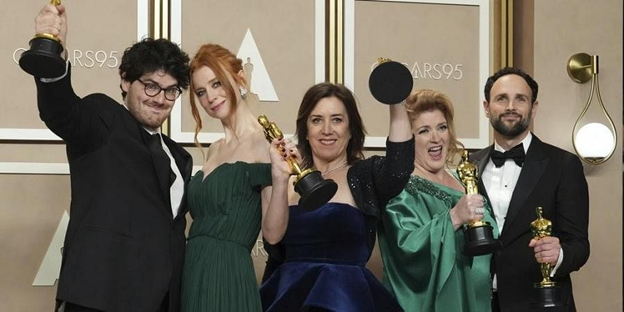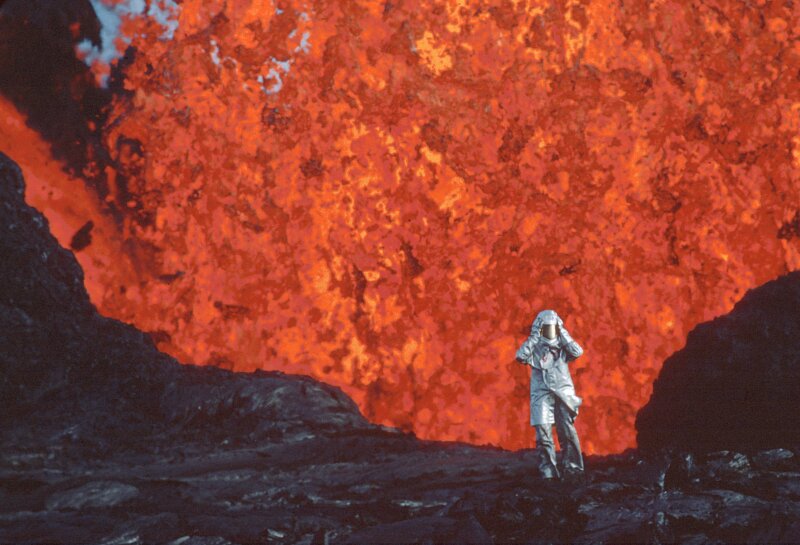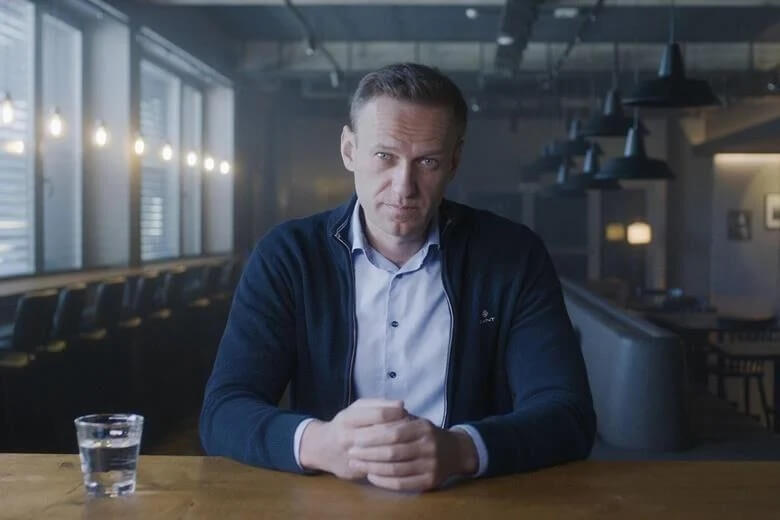
Film producer Shane Boris ’00 was part of the five-person team that took the stage to accept the Oscar for Best Documentary Feature at this year’s 95th Academy Awards ceremony, held on March 12. Navalny, directed by Daniel Roher for CNN Films, tells the story of Russian opposition leader Alexei Navalny, an outspoken critic of President Vladimir Putin, who was the victim of a near-fatal poisoning in a Kremlin-led assassination attempt and was later jailed. Navalny remains in solitary confinement in Russia, a symbol of opposition to the country’s invasion of Ukraine, according to the film.
The winner of multiple previous awards, including the Sundance Film Festival’s Festival Favorite Award and Audience Award for U.S. Documentary, the film has been described as “a blow to Putin’s Russia” for its detailed revelations about the highly orchestrated plot to kill Navalny. In one extraordinary scene, Navalny actually speaks with his would-be assassin on the phone and coaxes him into making a full confession.
On stage at the Oscars ceremony, Roher dedicated the win to Navalny and to “all political prisoners around the world,” saying, “We cannot, we must not, be afraid to oppose dictators and authoritarianism wherever it rears its head.” Also present at the ceremony, Navalny’s wife, Yulia, appealed to the Academy Awards’ worldwide television audience. “My husband is in prison just for telling the truth,” she said. “My husband is in prison just for defending democracy. Alexei, I’m dreaming of the day when you will be free and our country will be free.”
Navalny’s Oscar win was shared by Roher, Boris, and producers Odessa Rae, Diane Becker, and Melanie Miller. Of the team, CNN Films said, “An extraordinary group of people were dedicated to keeping Alexei’s story in front of the world.”

Incredibly, Boris was nominated for Best Documentary Feature for a second film this year, Fire of Love, which chronicles the work of French explorers Katia and Maurice Krafft, as they investigated volcanic eruptions and ultimately died together in one. The dual recognition made Boris only the second person ever to receive two documentary nominations in the same year; the other filmmaker was Walt Disney. Boris had also been nominated in 2020 for The Edge of Democracy, an inside look at the election of Jair Bolsonaro, Brazil’s populist president.
Boris spent a year working simultaneously on Navalny and Fire of Love, splitting his time between Denver and Los Angeles and collaborating with separate teams that ultimately came to support one another. According to Roher, “Shane’s love and his care and his compassion are threaded into both of these films.” Boris’s newest film, King Coal, just had its Sundance premiere. Directed by Elaine McMillion Sheldon, the feature looks at the power coal holds over identity in Appalachia.
The producer’s gift for telling important human stories can be traced back to Colorado Academy, where Boris says he first learned what it felt like to help “extraordinary people embody their insights and truths and share them with the world.” He saw that ability modeled by his teachers at CA, he says. “I felt the sense that they really cared about whatever was special in me and the rest of my classmates. They believed in us.” When marking up papers, Boris continues, rather than crossing out what was wrong, his CA teachers “circled everything that had potential.”
He highlights a moment during the production of Navalny as a time when he saw something with great potential and knew he had to hold on to it. In one of the last interviews the opposition leader gave before he was taken to prison, he implored the filmmakers, “The world must not look down.”
“I knew then,” Boris says, “that for myself, too, this was a moment to not look down. This story exists; his plight exists. The fight exists for a world where tyranny is not left in the darkness, but has a light shined on it so that we know we must do something about it. We must make this film.”
